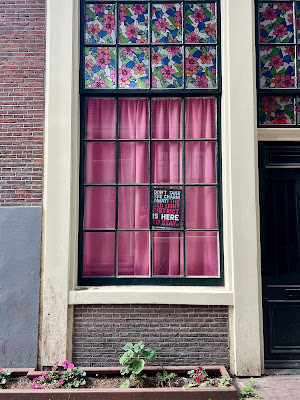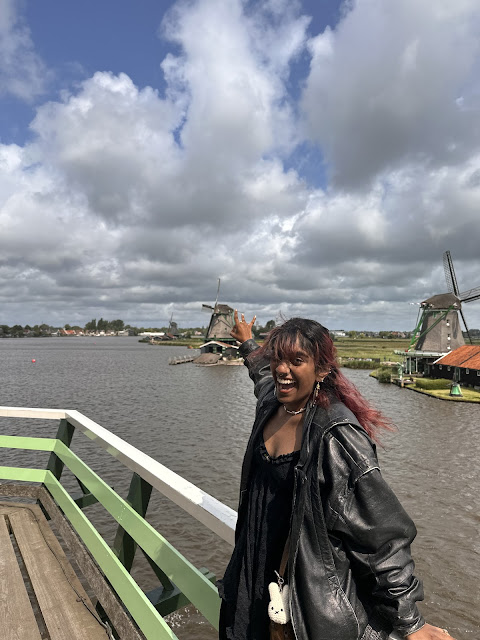Before arriving in Amsterdam, I thought I had a decent handle on what to expect: liberal policies, bike chaos, and a culture that was generally more open about sex than anything I’d experienced in the US. I was excited to learn in a place where social expectations weren’t built on religious morality and shame. Despite this final post being a farewell to Amsterdam, I feel as though I’ve only just gotten a taste of Europe. This trip has pushed me to reevaluate my own self-proclaimed open-mindedness, leaving me with an impatience for the American status quo.
The Netherlands has branded itself as a haven for sexual freedom and queer rights, and in many ways, it’s ahead. Comprehensive sex education is legally required. Sex work is regulated, taxed, and treated (at least by policy) as legitimate labor. Trans individuals can now legally change their gender under public healthcare without forced sterilization, and queer history is archived, honored, and housed in publicly funded libraries. All of this is real, and still, none of it tells the full story.
Learning about Dutch colonial history, queer erasure, and the moral double standards embedded in sex work made it clear that visibility isn’t the same as safety. Brenda’s story made that especially obvious. As a sex assistant for disabled clients, she’s seen as nurturing and respectable. But when she works as Lucy, in the Red Light District windows, the same work is met with discomfort and moral scrutiny. Her labor is tolerated only when it aligns with what people are willing to understand.
That pattern shows up everywhere. At IHLIA, I was moved by the effort to preserve LGBTQ+ history, but it was hard to ignore how much of that archive centers white, cis, gay men. Savannah Bay Bookstore exists because queer women weren’t included in that “progress.” Even the government’s more inclusive moves like decriminalizing sex work are being rolled back under the banner of “protection” without consulting the women working themselves. It's not that the Netherlands is failing – it’s that it’s not finished. And pretending otherwise stagnates progress.
At the same time, this trip made me reflect on how deeply moral panic and shame shape sexual culture in the US. It’s well known that American sex ed is lacking, but hearing about the Dutch model’s emphasis on autonomy, communication, and pleasure made that contrast feel more cavernous. Moreso, the culture created by starting sex ed at a young age leads the next generation to fortify the national value of pragmatic openness towards sexual liberation. If we’d grown up with that kind of education, maybe it wouldn’t have taken me and so many of my peers so long to see sexuality as something to have ownership over rather than something to perform or defend. In the behavioral neuroscience lab I work in, we talk about sexual behavior, hormones, and reward pathways like they exist in a vacuum, but this trip reminded me that biology is always filtered through policy, culture, and history.
Traveling here as a queer first-gen American who’s had negative experiences in other European countries, I didn’t always know what to expect or where I fit into the big picture of it all. There were moments when it felt like I was watching a show I wasn’t fully invited to. But by week three, being in that liminal space, between insider and outsider, observer and participant, helped me sharpen my voice and cement the passions I have for political progress. I’m leaving Amsterdam with more questions (and more than a twinge of longing), but also a clearer sense of what I care about: education that doesn’t rely on shame, prioritizing people over governments, and queer emancipation that doesn’t just stop at the parade float.
I don’t know exactly where I’ll land after undergrad for veterinary school. Of all things, it seems like another world away from the pocket of liberality Amsterdam has been. How logical it has been to learn about a country where the validity of reason and science isn't questioned, where progress doesn’t mean one step forward and two steps back.
This trip clarified that no matter what field I’m in, I will stay in the conversation. Not only about sexuality, but about justice and the kinds of systems we build when we assume certain bodies are worth more than others. I used to cringe away from my tendency to be the resident feminist killjoy, but how could I see it as anything but an honor after all we’ve learned?

.jpg)

.jpg)





.jpg)
.jpg)